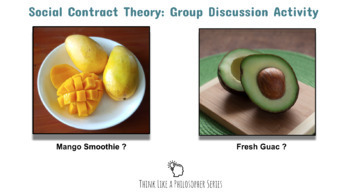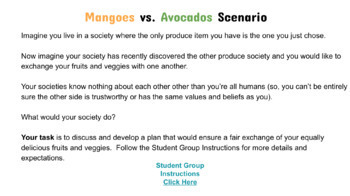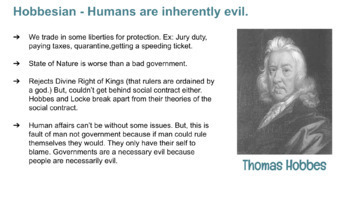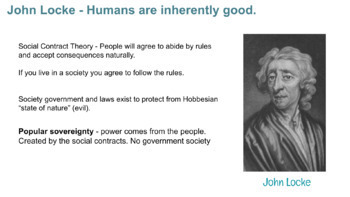Think Like a Philosopher: Social Contract Theory Small Group Activity
- Google Drive™ folder

What educators are saying
Also included in
- Introduce philosophy to your students with these two unique lessons! These lessons are like a good recipe, you just have to follow the instructions for best results. Both lessons have detailed lesson plans and classroom refined activities and assessments. These work as a 90 minute stand alone lessonPrice $5.75Original Price $8.75Save $3.00
Description
Great Class Opener! Potential for More! Get your Students Thinking About Their World!
Students debate and discuss the philosophical question, "Are humans inherently evil or inherently good?"
Simple, but engaging, The Think Like a Philosopher: Social Contract Theory lesson has students discuss and debate the question, "Are humans inherently evil or inherently good?" This group discussion activity will introduce students to the enlightenment philosophy made famous by Thomas Hobbes and John Locke through the use of peer learning and small group communication.
The lesson stresses active, student-centered learning. Light on the informational text, but designed to get students connecting their original thoughts to the tenets of social contract theory. Students feel empowered and smart when working with this lesson. It works great at demystifying 19th-century philosophy.
This is also a great unit to get students flexing their critical thinking skills and demonstrating proper group communication skills as well. I usually use this as a standalone lesson when I'm in between units or near the beginning or end of a semester. But, it can also be incorporated easily into English Literature and Civics classes that deal with issues such as equality, liberty, and the benefits and disadvantages of claiming membership in a society.
Included in this unit:
Think Like a Philosopher Google Slides Presentation - Fully edited and scripted to help you engage students in the lesson and activity.
Avocados vs. Mangos Student Group Activity - This activity has students choose to be a part of either the Mango society or the Avocado society. They must then develop a plan that will ensure their two societies can fairly trade their goods with one another. It contrasts the theories of Hobbes and Locke by explaining them in the presentation and then connecting student answers to the particular theory. Are humans inherently good or are they inherently bad?
Lesson Extension Persuasive Speaking Prompts - Included at the end of the Google Slides presentation are several extension lessons students can engage with in order to extend the lesson. Again, stressing active, student-centered learning the persuasive speaking prompts allow students to practice their public speaking, while also thinking deeply about social contract theory.
Lesson Extension Teacher Rubric - A simple, but effective rubric to grade student's persuasive speeches.
Teacher Lesson Plan - A step-by-step instruction plan that includes learning objectives!






